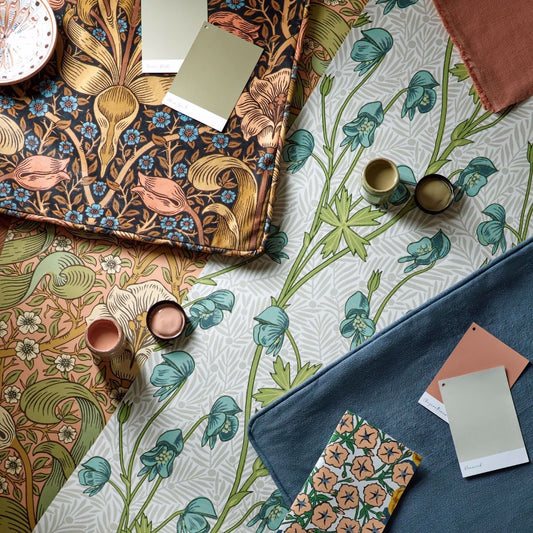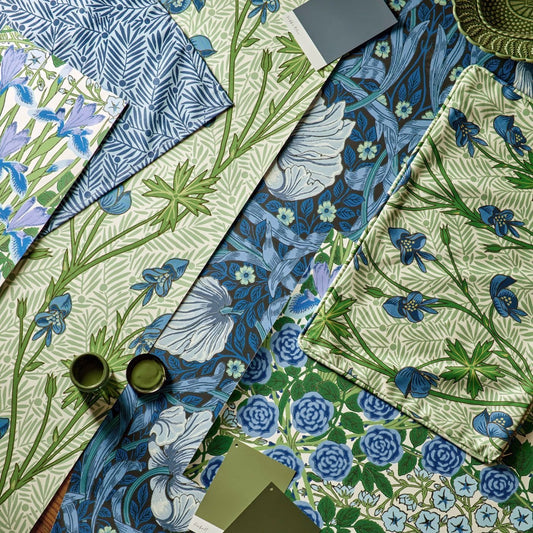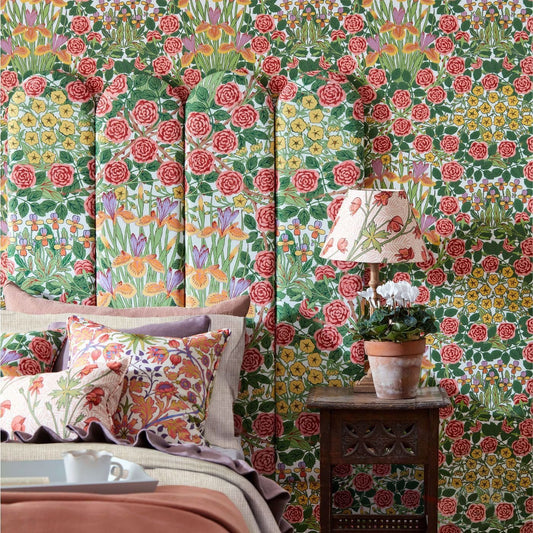مجموعة: Campanula Wallpaper: Lowest US Price
Campanula Wallpaper - Morris Wallpaper
William Morris’s Campanula wallpaper is a light, lyrical design that celebrates the delicate beauty of bellflowers(campanulas) within a graceful, repeating pattern. It's a wonderful example of Morris's ability to turn even the humblest garden flower into a work of art—elevated by his eye for structure, rhythm, and natural form.
Design & Motifs:
-
The star of the pattern is the campanula, a bell-shaped flower that grows on tall, slender stems and gently nods its head.
-
In Morris’s interpretation, these flowers are rendered in a stylized yet naturalistic way, flowing along with intertwining stems and softly curling leaves.
-
The design creates the impression of a wild hedgerow or cottage garden, captured in a moment of gentle breeze and soft light.
Pattern Structure:
-
“Campanula” has a vertical flow, with stems and flowers rising in repeating clusters, giving it an almost textile-like striping effect.
-
The design is symmetrical and balanced, yet it maintains a lightness and spontaneity that makes it feel airy rather than rigid.
-
Compared to denser Morris patterns (like Pimpernel or Bird and Pomegranate), “Campanula” is more open and minimal, making it ideal for smaller or more tranquil spaces.
Colorways:
-
Traditional colorways often feature:
-
Soft greens and silvery blues for leaves and stems
-
Pale violet or lavender hues for the bellflowers
-
Warm cream or parchment-toned backgrounds
-
Modern reprints sometimes offer dove grey, sage, or blush tones, lending it a romantic, versatile aesthetic.
The result is a palette that feels fresh, calming, and organic—perfect for creating a peaceful atmosphere.
Historical Context:
-
While Campanula is sometimes attributed to Morris, it was likely designed by J.H. Dearle, Morris’s longtime collaborator, who continued the house style seamlessly.
-
It reflects Morris’s core principles: a love of hand-drawn botanical forms, an emphasis on repetition and symmetry, and a desire to bring beauty into everyday domestic spaces.
-
Originally created in the late 19th or early 20th century, it echoes the Arts and Crafts ideal of uniting art and nature.
Mood & Best Use:
“Campanula” evokes a mood of quiet, pastoral elegance. It’s ideal for:
-
Bedrooms and nurseries
-
Powder rooms or sunlit hallways
-
Country cottages or period-inspired interiors
-
Any space where you want to create a soft, floral ambiance without overwhelming visual density














